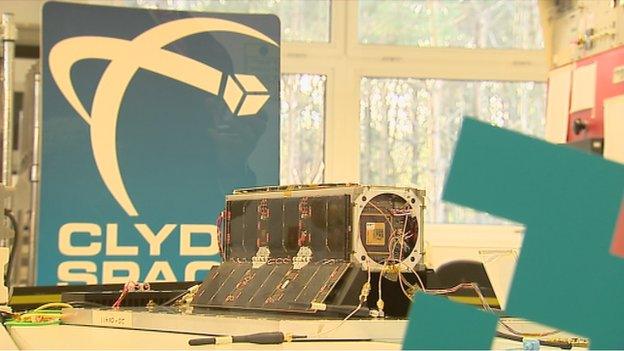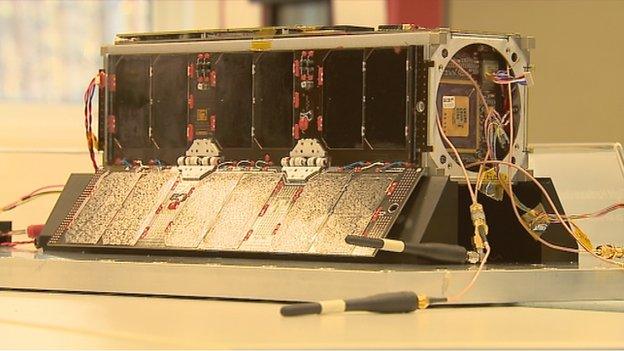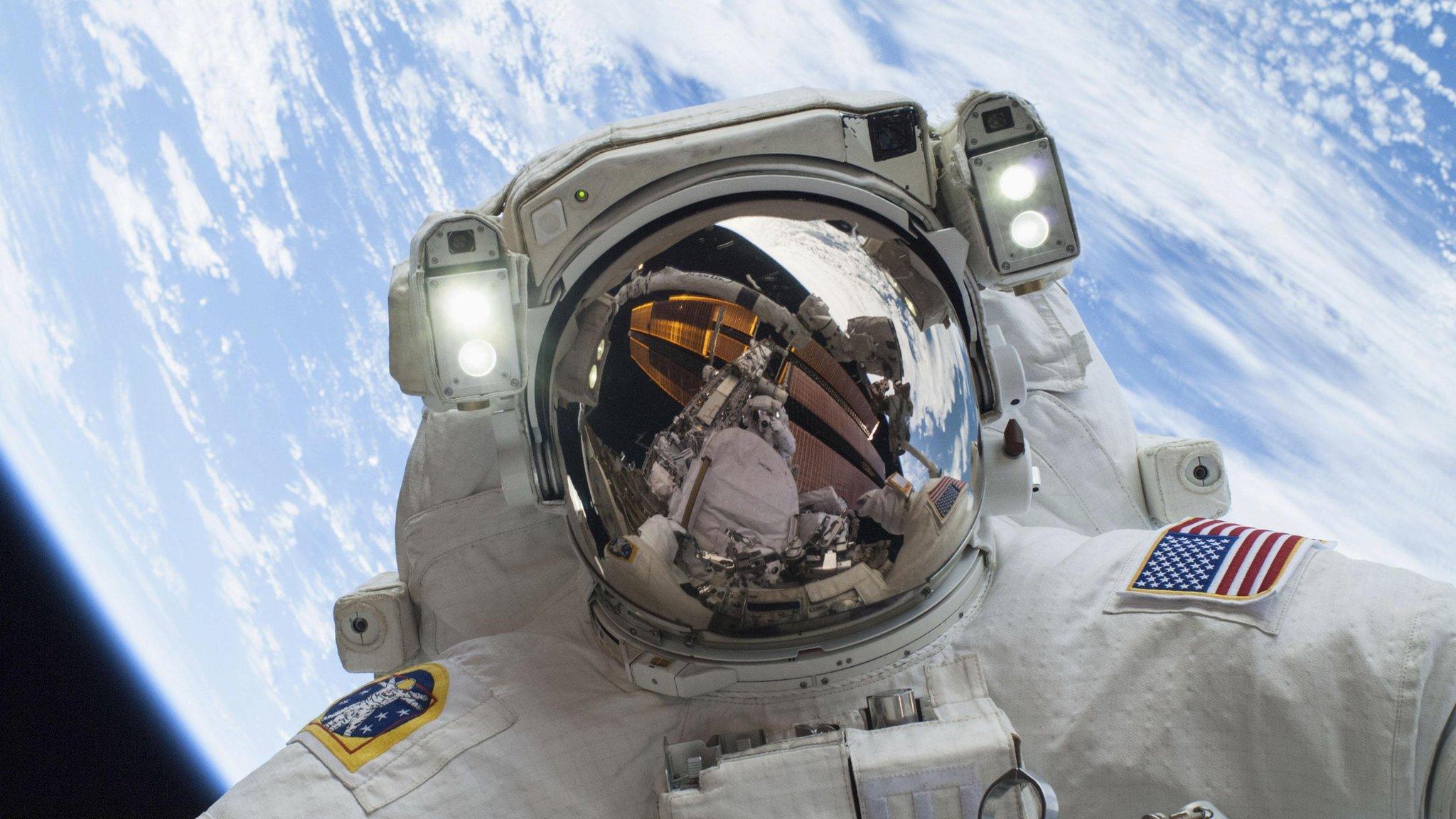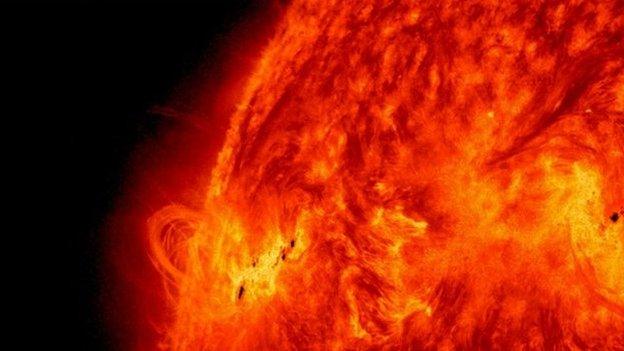First Scottish satellite has 'successful' launch
- Published

The manufacturer says it could make hundreds, or thousands, more satellites
Scotland's first satellite has been launched successfully in Kazakhstan according to the team who built it.
UKube-1 is a cubesat, packing six payloads into a space not much bigger than a shoebox.
Its experiments include a study of space weather and a project to let school pupils interact with the satellite.
It was commissioned by the UK Space Agency and built by Glasgow company Clyde Space.
The firm has a big share of the market for cubesat components and already has orders for another two complete satellites.
It says it is planning to mass-manufacture hundreds or even thousands more.
Strictly speaking it is not Mission Control Maryhill but it is not far from it.
The headquarters of Clyde Space is up a flight of stairs in a neat but unassuming building at Kelvin Science Park in Glasgow's West End.

The satellite will be carried on a rocket taking off from Kazakhstan
They will not be running the mission from here but this is where they built the first Scottish satellite.
The basic cubesat concept is a cube ten by ten by ten centimetres. That's a litre into which, thanks to microelectronics, you can squeeze a lot of science.
The design of UKube-1 is based on three such boxes. It is what they call a 3U cubesat. Three litres of payload.
Clyde Space say this is the most advanced small satellite of its kind in the world and - they hope - the first of many. Because the economics of spaceflight are in their favour.
A cubesat could cost you around $250,000. Not the sort of thing you could buy out of the housekeeping money but in the satellite business it is close to peanuts.
The low weight means launch costs are also relatively low.
Universities, research institutes and - increasingly - businesses are seeing them as affordable options for getting experiments and services into Earth orbit.
A low orbit means some other cubesats will burn up on re-entry after just a few years. But it should not cost too much to replace - and that is where Clyde Space foresee a huge growth area.
Mass manufacturer
They think cubesats will become a mass market, with some companies ordering hundreds at a time. Clyde Space think they could become the first mass manufacturer of small satellites with thousands of orders on their books.
But they are walking before they run. The publicity surrounding UKube-1 has helped them win orders for two more complete satellites. The business of building components and subsystems for cubesats has also continued to grow.
Turnover has doubled in a year. Staff numbers have increased by 50%. This is just part of a burgeoning Scottish space industry which many Scots don't yet realise exists.
A successful launch and deployment could change all that.
UKube-1 was launched aboard a Russian Soyuz rocket from the Baikonur cosmodrome in Kazakhstan.
It was the Soyuz which lifted many Soviet space pioneers to orbit when Baikonur was still part of the USSR. Its 21st century incarnation continues to combine reliability with relatively low cost.
UKube-1 is one of eight large and small satellites aboard for this launch, further underlining the economic arguments for both the cubesat concept and Soyuz.
Baikonur occupies a hallowed place in the history of spaceflight. Sputnik 1, Earth's first artificial satellite, lifted off from there. So did Yuri Gagarin, the first human in space.
The launch of Scotland's first satellite is admittedly a smaller milestone. But in Maryhill they'll be watching just as intently as those first satellite builders.
- Published17 March 2014

- Published29 January 2014

- Published27 January 2014
